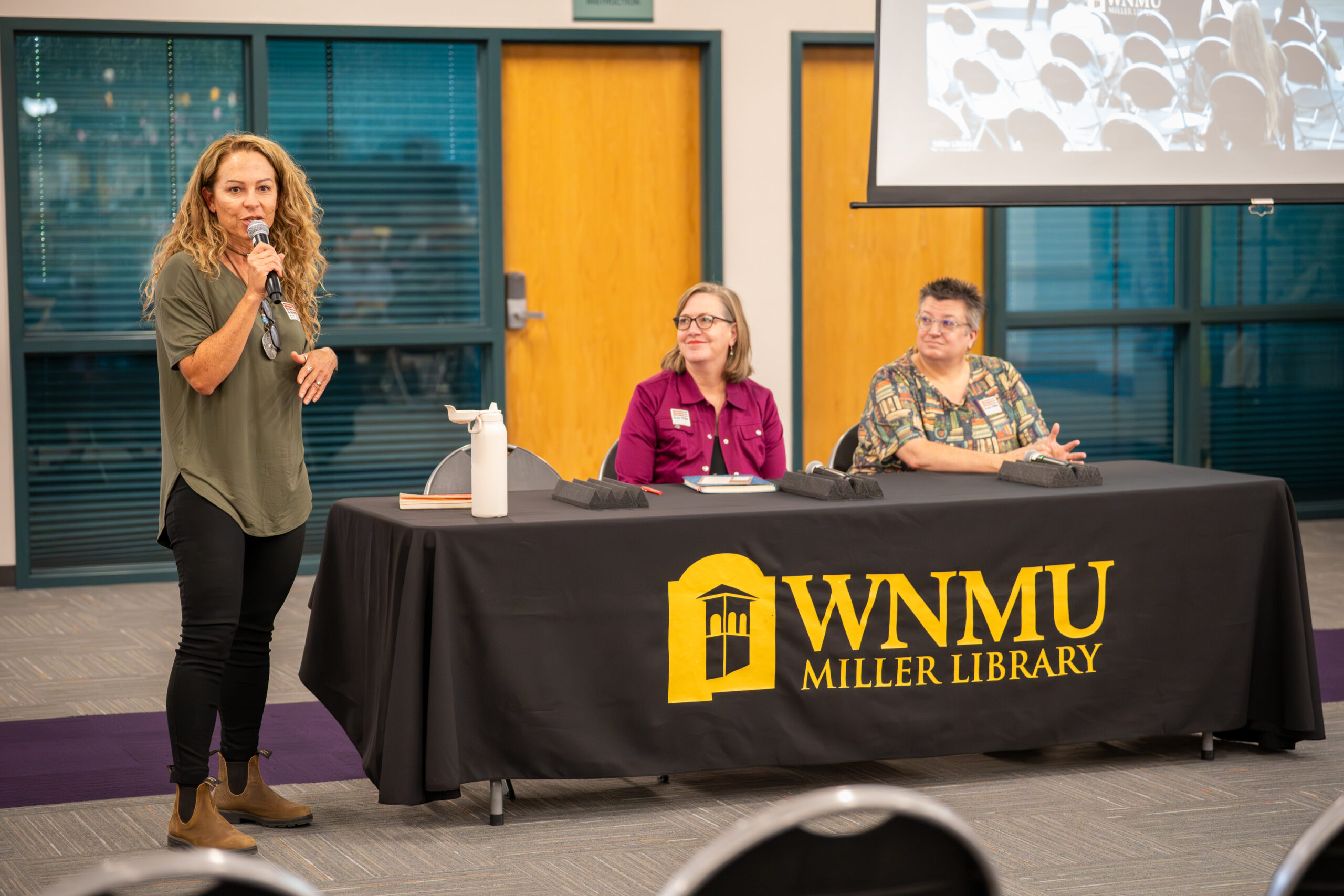WNMU Fosters Dialogue on Censorship with Banned Book Week Events
Western New Mexico University (WNMU) concluded its annual Banned Books Week celebration on October 7, with a series of well-attended events that fostered engaging discussions on intellectual freedom and the power of narrative. The observance, held October 1 through October 7, marked the sixth year of the partnership on Banned Book Week between the Humanities Department and Miller Library, which began in 2019. This year’s events focused on expanded reach by incorporating new elements and a variety of voices.
“This time we did things a bit differently and made the events more robust,” said key organizer and WNMU Humanities Professor Heather Frankland, MFA, MPH. “What was great to see this semester was that we had such a variety of disciplines, experiences, and voices,” she added.
The week’s events provided multiple avenues for participation. The celebration began with Stories That Stick, a sidewalk chalk event hosted by Frankland, where students decorated the campus with quotes and art from banned books.
Events also included a lively discussion on banned books and why they are targeted, led by WNMU Library Director Samantha Johnson and Silver Public Librarian Lillian Galloway, in connection with WILL (Western Institute of Lifelong Learning).
The week culminated on October 7 in the J. Cloyd Miller Library’s annual Banned Books event. Johnson, who was also part of the October 7 event, noted that book challenges are on the rise, with numbers now higher than they were in the 1980s, creating a pressing need for constructive dialogue.
History Professor Scott Fritz, Ph.D., spoke on the banning/challenging of A People’s History of the United States, by Howard Zinn. At the same time, Associate Professor of Reading Catherine Gregorius, Ph.D., shared personal accounts of navigating book challenges during her career.
The Editor-In-Chief of the WNMU undergraduate academic journal, The Maverick, Anais Orantez, presented through a video recording.
The annual event also included a dynamic panel discussion with WNMU faculty, moderated by Alexandra Neves, Ph.D., Associate Dean of the College of Education at WNMU. Lisa Taylor, Ed.D., from the College of Education, also sat on the panel, noting the disturbing trend of rising book challenges and bans.
Questions from the audience explored what narratives are lost when we remove books from shelves. Students, in particular, voiced concerns, wondering “what is being kept from me if I cannot access these books?” The discussions touched upon widely challenged works, including the Harry Potter series and Judy Blume’s Forever, which Frankland highlighted in a presentation for its honest portrayal of sex.
Student involvement was a highlight of this year’s observance. Students from the Rhetoric and Composition Workshop deepened their understanding by reading excerpts from Harry Potter and Luis Alberto Urrea’s The Devil’s Highway. Students highlighted regional connections, including the Alamogordo book burning of Harry Potter books in the 2000s and the banning of The Devil’s Highway in Tucson, Arizona.
The core of the conversation consistently returned to the purpose of literature. As Frankland noted, studies increasingly show that books act as a mirror or window, helping readers connect with others and test higher for empathy after reading character-driven works.
“Many people hung around after the panel discussion to talk further,” Frankland said. “While the subject matter can feel disheartening, enthusiasm and passion from the presenters brought a feeling of hope.”




